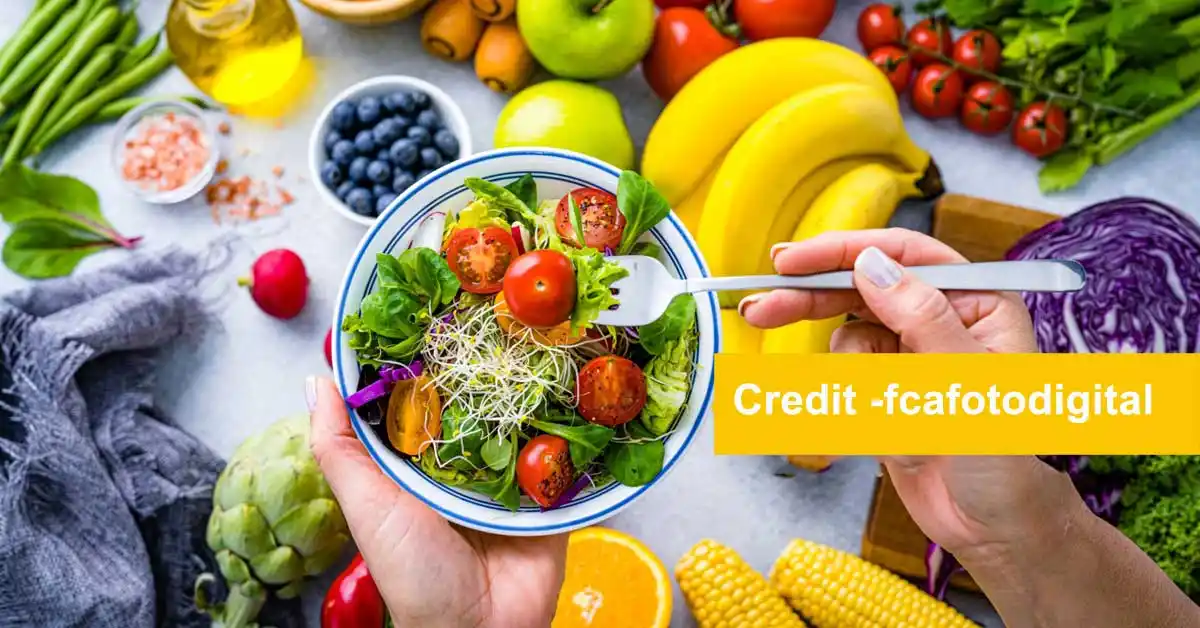Modern life brings constant pressure. Crazy work deadlines, family obligations, being a grown up with daily responsibilities leave us feeling overwhelmed. Stress and anxiety are both widespread issues that are not limited only to one place.
The good news? What you eat can really matter. A diet for stress relief contributes the nutrients your body requires to fare better. The right foods to reduce stress can work in a natural way to calm your mind and elevate your mood.
Your kitchen may have the secret to feeling calmer and centered throughout the day.
1. The Role of Diet in Stress and Anxiety
a) The Gut-Brain Connection
Your gut and your brain talk to each other all the time — when you’re healthy. This is what scientists refer to as the gut-brain axis. Stress goes down, and so does your digestive system. Your gut can make anxiety worse when it’s unhappy.
Gut health and anxiety are intricately connected. Your gut manufactures roughly 90% of your body’s serotonin, the so-called “feel-good” hormone. That’s why probiotic foods for mental health can be so potent.
b) The Nutritional Influences on Mood: Role of Macronutrient Modulation
Some vitamins, minerals, and fats play a direct role in how you feel:
- Magnesium-rich foods for stress reduce muscles tension and relax the mind
- Omega-3 foods to reduce anxiety prevent brain inflammation and keep your mood story
- The generation of neurotransmitters that play a role in mood regulation is aided by B vitamins
- Vitamin C reduces your main stress hormone cortisol
2. Best Foods to Help You to Relieve Your Stress and Anxiety
i) Green Vegetables
Dense with nutrients, dark leafy greens are anti-anxiety foods. Magnesium-rich: Spinach, kale and broccoli are like a little natural relaxer for your nervous system.
Insufficient Magnesium can make you more susceptible to anxiety. There are not many things in modern life, it happens for the human body. Increasing the amount of greens, you eat fills that void naturally.
ii) Nuts and Seeds
Feeling anxious or stressed? Try eating some superfoods like pumpkin seeds, walnuts, or almonds. They’re also an excellent source of healthy fats that feed the brain. Walnuts have the highest content in omega-3 fatty acids.
A few heart-healthy mixed nuts can do the trick. They offer sustained energy without the crash that is associated with sugar for a longer period of time.
iii) Dark Chocolate
Dark chocolate (70% cacao or higher) could be one of the happiest foods to eat. It’s got compounds that raise the levels of the feel-good chemical serotonin in your brain. The antioxidants in dark chocolate also reduce stress hormones like cortisol.
Choose quality over quantity. A small square daily can deliver benefits without chocking on added sugar.
iv) Fruits and Berries
Citrus fruits, like lemons and oranges, are packed with vitamin C, one of the foods that reduce cortisol, an antioxidant for anxiety.
Bananas are also rich in tryptophan, which your body transforms into serotonin. They’re nature’s mood lifters.
Blueberries are brain superfoods. And those little berries are antioxidants that protect brain cells from stress damage.
v) Fatty Fish
When you’re feeling anxious, try eating some omega-3 fatty fish like salmon, mackerel, or tuna. These healthy fats calm inflammation in your brain. They also can help regulate neurotransmitters that influence mood.
Aim to have two servings of fatty fish weekly. If you don’t eat fish, get your omega-3 fatty acids from plant sources, such as chia seeds or flaxseeds.
vi) Dairy and Fermented Foods
Consuming living cultures in Greek yoghurt can aid with gastrointestinal health. As you know, these mental health probiotic foods help in preserving the good bacteria balance in the digestive system.
Weirdly, the thinking went, warm milk before bed can have a natural calming effect. It has some tryptophan in it, which will aid better relaxation and sleep quality.
vii) Other Stress-Busting Foods
Avocados contain plenty of B vitamins and healthful monounsaturated fats. They reduce anxiety and support your brain’s health.
- Among best drinks for stress, herbal teas deserve a special mention:
- Chamomile tea is a natural soother
- Green tea for natural energy, without the jitters
- Passionflower tea plant native to South America can decrease symptoms of anxiety
3. Diet Tips for Managing Anxiety and Stress
a. Eat Regular, Balanced Meals
The best diet for anxiety begins with regular eating habits. Skipping meals, and thus, blood sugar drops are common causes of anxiety attacks.
Shoot for three well-balanced meals plus snacks. Add protein, good fats, and a complex carb to each meal to help keep you calm.
b. Stay Hydrated
Dehydration can also exacerbate stress and anxiety. The mild dehydration, too, affects your mood and concentration. So, stay hydrated all day long, not merely when you feel the need.
c. Never Skip Breakfast
Your energy levels will be more stable if you start your day with a well-balanced breakfast. Add some protein and complex carbs to really feed your brain well.
d. Choose Whole Grains and Fiber
Carbs for calmness provide slower, steady blood sugar. Opt for brown rice, quinoa, oats, or whole grain bread rather than white.
Fiber rich foods are also good for your gut-health (which in turn can affect your mood, anxiety, and various other things).
4. Foods to Avoid When Stressed
Certain foods can exacerbate stress and anxiety. Foods that causes stress are:
i) Excess Caffeine
Overdoing it on coffee or energy drinks can amp up jitters and make anxiety worse. Avoid drinking coffee or other caffeinated beverages in the afternoons if at all possible.
ii) Sugary and Processed Foods
A surge in blood sugar levels is caused by them, which is then followed by a drop. This ‘roller coaster’ can cause the experience of symptoms of anxiety and of mood swings.
iii) Alcohol
Alcohol, for example, may seem like a relaxation aid at first, but it interrupts sleep and can exacerbate anxiety over the long term. The interference in nutrient absorption also occurs.
5. Lifestyle Tips Along with Diet
Nutritional strategies for anxiety are best considered in concert with other healthy habits:
a. Practice Mindful Activities
Paying attention to the food you consume is the essence of mindful eating for stress management. Take your time to have every bite. This habit will decrease stress hormones.
Yoga or meditation partner beautifully with a stress-busting diet. Even 10 minutes a day can have an effect.
b. Maintain Regular Sleep
Good sleep supports the effects of your anti-stress diet. Aim for 7-9 hours nightly. It is not a good idea to consume large meals shortly before go to bed.
c. Stay Active
You can also let off steam through regular workouts, which helps reduce stress hormones in a natural way. It doesn’t have to be vigorous — even walking is beneficial. Exercise also helps you use the nutrients you take from best foods for anxiety relief in the right manner by your body.
Conclusion
It may sound simple, but the road to controlling stress and anxiety with diet is really effective. Focus on eating items that help calm your nerves, like nuts, berries, leafy greens, and fatty fish. Add in your mental health probiotics to keep your gut-brain connection strong.
Keep in mind this important nutrition advice for stress management:
- Eat regular, balanced meals
- Choose your whole foods first over anything that would be junk processed
- Stay hydrated throughout the day
- Limit caffeine and sugar
Staying committed to building a diet that strengthens you against stress can be tedious, but it’s a practice with reward. Begin small, incorporating one or two stress-fighting foods into your daily regimen.
The same amount of attention that you provide to your physical health should also be given to your mental health. If you make these dietary changes a permanent lifestyle, you’ll find that your stress will melt away over time.
FAQs
Q: How soon would I notice results after changing my diet for stress and anxiety?
A: Most begin to notice little changes after 1-2 weeks of consuming more stress-busting foods. You may notice more steady energy levels first. Mood enhancement is usually experienced after 3-4 weeks of continued healthy nutrition.
However, everyone is different. Some people notice changes in just a few days, while others may take 6-8 weeks. The trick is sticking to your healthy diet when it comes to stress relief. The change is subtle and long-lasting, so don’t expect miracles right away.
Q: Is it safe for me to have coffee if I am experiencing anxiety?
A: Yes, but moderation is key. If you suffer from anxiety, you should limit yourself to drinking from one to two cups of coffee. Most experts recommend consuming fewer than 1-2 cups of coffee per day. Caffeine is a known anxiety trigger, and it can make things worse for some people.
Try these tips:
- Opt for green tea for milder caffeine effects
- No coffee after 2 PM to safeguard your sleep
- Do not take coffee on an empty stomach
- Try out decaf versions of your favorite beverages
Eliminating coffee entirely is the best course of action to take if you discover that it makes your anxiety symptoms worse.
Q: When are the best times to eat these stress-fighting foods?
A: Throughout the day works best! Here’s an ideal schedule:
- Morning:Begin with complex carbs like oatmeal topped with some berries and a couple nuts
- Lunch:Work in fatty fish or a green leafy veggie in your main meal
- Snack:Opt for foods with high magnesium, such as almonds or some dark chocolate
- Evening:Introduce probiotic foods (yogurt, herbal teas) before turning in for the night
The essential thing is eating regularly. Missing meals can lead to anxiety, so try to eat a well-balanced snack or meal every 3-4 hours.
Q: Are supplements really necessary, or can I get everything I need from food?
A: Food should come first. In fact, a well-designed anti-anxiety diet will give you most of those nutrients. But if you have any of the following conditions, you might need supplements, especially:
- Omega-3 supplements if you’re not dining on fish
- Magnesium supplements, if you are very deficient
- Vitamin D for low-sunlight areas
- For digestive woes, probiotics
Always make sure to schedule a consultation with your primary care physician before beginning to take any kind of supplement. Drugs may interact with them, and they may also have adverse consequences. Eat as many whole foods as you can to get the micronutrients you need.
Q: How can I tell if my gut health is affecting my anxiety?
A: Here are some signs that gut health and anxiety are related:
- Structural:Tummy troubles when stressed, gassy, or constipated
- Mental:Anxiety following specific meals, mood swings when hungry, brain fog
If you’re seeing these patterns, add probiotic foods for mental health including yogurt and fermented vegetables. Keep a food and mood diary. In the event that your symptoms persist, you should be sure to seek medical attention.



